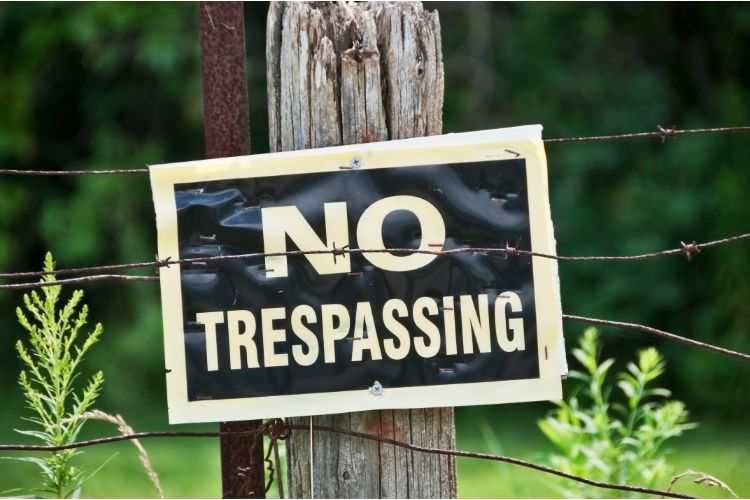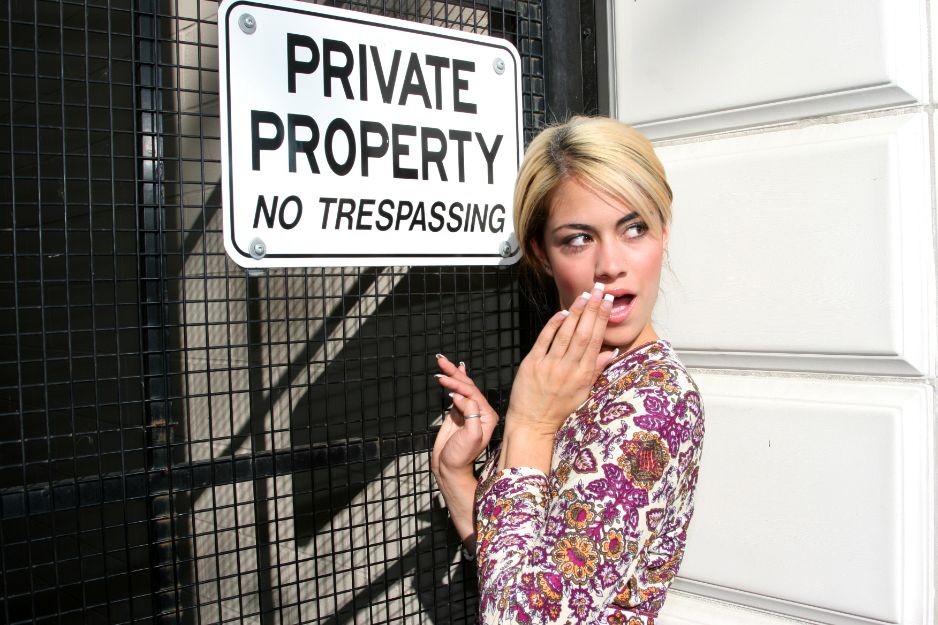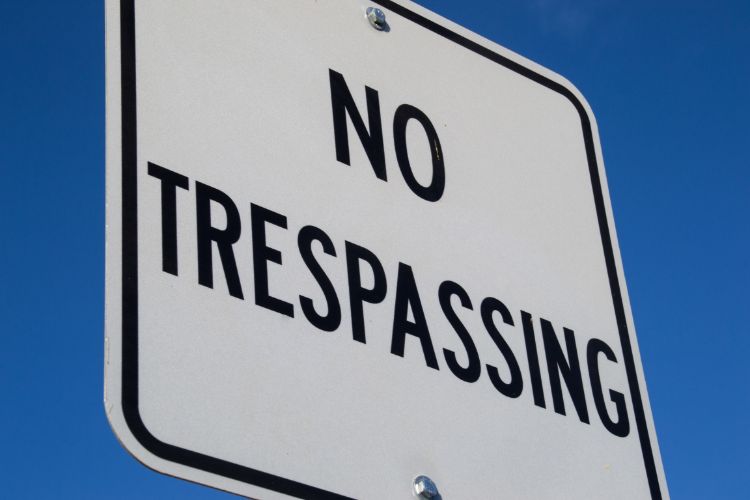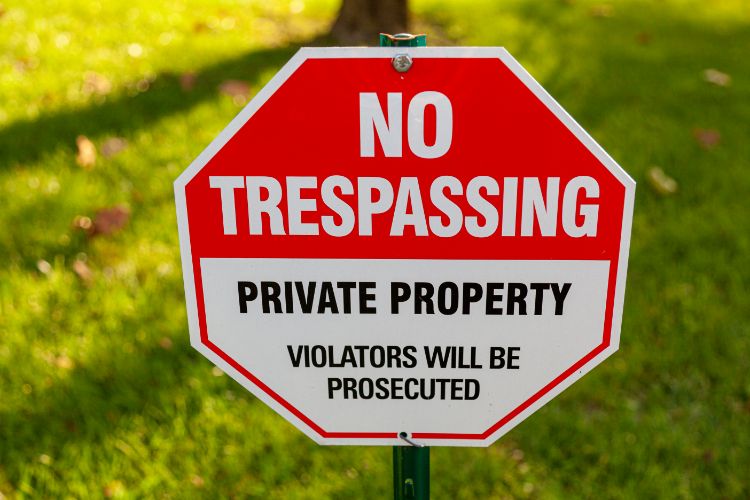
Trespassing laws in Arizona are designed to protect property owners’ rights and maintain public order. Understanding these laws and their associated penalties is crucial, whether you’re a property owner looking to safeguard your land or an individual aiming to avoid legal trouble. This post will delve into what constitutes trespassing in Arizona, the legal classifications and penalties, factors influencing these penalties, potential defenses, and tips for preventing trespassing incidents.
What Constitutes Trespassing in Arizona?

In Arizona, trespassing occurs when an individual enters or remains on someone else’s property without permission. The law categorizes trespassing based on the property type and the offence’s nature. Trespassing can occur in various contexts, such as residential areas, commercial properties, agricultural land, and even public places where access is restricted. Typical scenarios include:
- Entering a fenced yard without authorization.
- Staying in a building after being asked to leave.
- Crossing into a restricted area in a public park.
Legal Categories and Classifications of Trespassing
Trespassing offenses in Arizona are classified into misdemeanors and felonies, depending on the severity of the act and the circumstances surrounding it.
Misdemeanors:
- Class 1 Misdemeanor: The most severe misdemeanor, often involving residential properties or businesses.
- Class 2 Misdemeanor: Generally involves non-residential properties.
- Class 3 Misdemeanor: The least serious, often involving public properties or minor infractions.
Felonies:
- Class 6 Felony: Typically involves more severe forms of trespassing, such as entering a property intending to commit another crime or using a deadly weapon.
Penalties for Trespassing in Arizona

Penalties for trespassing vary based on the offense’s classification and any aggravating factors present.
Class 1 Misdemeanor:
- Jail Time: Up to 6 months
- Probation: Possible, depending on the case
Class 2 Misdemeanor:
- Jail Time: Up to 4 months
- Probation: Possible, depending on the case
Class 3 Misdemeanor:
- Jail Time: Up to 30 days
- Probation: Possible, depending on the case
Class 6 Felony:
- Jail Time: 4 months to 2 years
- Probation: Likely, with strict conditions
Additional penalties can include community service, restitution to property owners, and court-mandated educational programs. Repeat offenders often face harsher penalties.
Factors Influencing Trespassing Penalties
Several factors can influence the penalties imposed for trespassing offenses:
- Aggravating Factors: These can increase penalties, including using a weapon during the offense, causing property damage, or having a prior criminal record.
- Mitigating Factors: These can reduce penalties and include first-time offenses, cooperation with law enforcement, and showing remorse or willingness to make restitution.
- Intent and Knowledge: The accused’s intent and awareness of trespassing can significantly impact the penalties. For instance, accidental trespassing may result in lesser penalties than deliberate entry with criminal intent.
Defenses Against Trespassing Charges
Defending against trespassing charges involves challenging the prosecution’s case and presenting justifications or explanations for the accused’s actions.
Common Defenses:
- Lack of intent to trespass
- Mistaken identity or alibi
- Consent from the property owner
- Necessity (e.g., entering property to avoid imminent harm)
- Legal right to be on the property (e.g., easement or official duty)
Legal representation is crucial in building a solid defense and navigating the complexities of trespassing cases.
The Legal Process for Trespassing Cases in Arizona

Trespassing cases follow a specific legal process:
- Arrest: The accused may be arrested if caught trespassing or if there is sufficient evidence of the offense.
- Charges: Formal charges are filed by the prosecutor based on the evidence.
- Court Proceedings: The case goes to court, where the accused can plead guilty, not guilty, or no contest.
- Trial: Both sides present evidence and arguments if the case proceeds to trial.
- Outcome: The case can result in dismissal, a plea bargain, or a verdict after trial. If found guilty, penalties are then imposed.
Throughout this process, the accused has rights, including the right to an attorney, a fair trial, and the right to appeal a conviction.
Preventing Trespassing Incidents
Preventing trespassing involves proactive measures by property owners and awareness by individuals.
For Property Owners:
- Clear signage indicating private property and no trespassing
- Fencing or barriers to mark boundaries
- Security measures such as cameras and lighting
For Individuals:
- Understanding and respecting property boundaries
- Seeking permission before entering private property
- Being aware of and adhering to posted signs and restrictions
Stay Informed and Protected
Understanding Arizona’s trespassing laws and penalties is crucial for anyone living in or visiting the state. Trespassing can lead to severe legal consequences, including jail time and a criminal record. By being informed, you can avoid unintentional violations and protect your rights. For property owners, implementing preventive measures can safeguard their land and reduce the risk of trespassing incidents.
Take Action Now
If you are facing trespassing charges or want to learn more about your legal rights, don’t hesitate to seek professional legal advice. Visit AZ Legal to connect with an experienced Arizona criminal lawyer. Our dedicated team of criminal defense lawyers is ready to help you navigate the complexities of your case and ensure the best possible outcome. Contact us today to schedule a consultation and take the first step towards resolving your legal issues.





